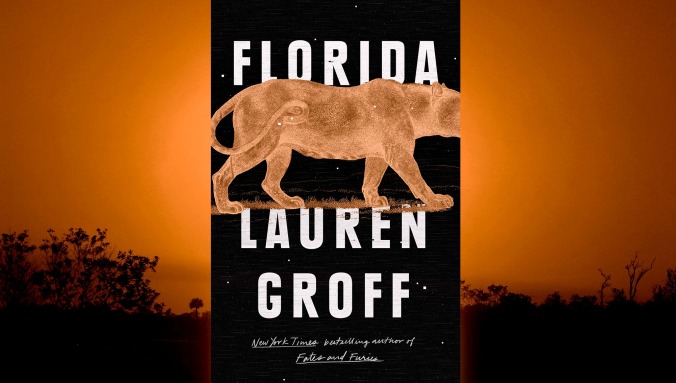
Lauren Groff opens her latest short story collection with a woman walking through her North Florida neighborhood, looking through her neighbors’ windows, getting brief glimpses of their lives. “Ghosts And Empties” is less a story and more an explanation of Groff’s methodology. While her first collection, Delicate Edible Birds, was filled with narratives that spanned decades and showed characters growing up, falling in love, and making defining friendships, Florida is a series of more focused vignettes, with many stories spanning just a single night or weekend, leaving the rest of what happens to the reader’s imagination.
It’s a testimony to Groff’s artistry that these stories can be at once satisfying while tantalizingly incomplete. The fascination with myth and fables that drove Groff’s bestselling novel Fates And Furies also weaves its way through Florida with tales like “Eyewall,” in which a woman waits out a hurricane while being visited by the ghosts of the men she’s loved, or “Dogs Go Wolf,” a “Hansel And Gretel” retelling in which two sisters are abandoned on a Florida island. Groff’s prose seamlessly drifts between the pressures of the moment—howling winds and empty bellies—and the circumstances that led her characters to their perilous situations. She splashes in just a moment of life on the other side of these dangers before moving on. The effect is mesmerizing and at times infuriating.
Characters rarely get names, referred to by their pronouns or generic titles like “the little sister” or “the mother,” leaving open the possibility that the stories are directly connected. The first-person narrator of “Ghosts And Empties” certainly seems to be telling several other stories throughout the book and may act as a voice for Groff herself—an author who has moved to Northern Florida, where she lives with her two sons, husband, and dog. If it’s a self-portrait, it’s an unflattering one, filled with anxiety about her shortcomings as a mother, inability to form connections with those around her, and tendency to drive away those she does bond with because of the intensity of her fears—about everything from the impact of climate change on coral reefs to the possibility of a sinkhole devouring her home. Whatever the inspiration, the narrator feels powerfully real, providing connective tissue to the book while also offering nuanced reflections on the seductive danger of its subject.
All of the stories are in some ways connected to Florida, creeping backward and forward in time to share tales of a once wild place that is still far from tame. Groff has the love of a transplant, finding what she describes as erotic beauty in its subtropical flora and hot rains but still feeling “an alien in this place,” plagued by nightmares after spotting a writhing mass of coral snakes while her little boys are only delighted by the discovery. That mix of fear and intimate knowledge allows her to look at the state clinically, showing it as a place that is alternately seductive, brutal, and hard to escape, where warm sun gives way to dark predators.
One of her most powerful stories, “Above And Below,” explores that dichotomy through the lens of a graduate student who becomes homeless after a breakup and loss of academic funding. The story starts with her walking out the door of her home for the last time, then shows her passing as a beach bum while living out of her car and spying on her former friends, fearing what would happen if they saw or smelled her. “They were nursing their plain black coffees, and she remembered, with a surge of ugliness, how they all used to complain that they were too poor for lattes. How rich they had been,” Groff writes. “It was a kind of wealth you don’t know you have until you stand shivering outside in the morning, watching what you used to be.”
As powerful a sense of place as Groff is able to provide, it’s a shame that she doesn’t venture further in her exploration of the state. Groff lives in Gainesville, home of the University Of Florida, and the city looms largest in her book, with only passing mentions of Miami or Orlando. Despite this, she has two stories about Floridian women taking breaks from caring for their mothers to travel abroad. “For The God Of Love, For The Love Of God” provides a wonderful look at power imbalances within friendships and the burdens that keep people locked in unhappy lives. “Salvador,” an unpleasant story about a woman afraid of being sexually assaulted by a grocery store owner, feels redundant in an otherwise tight collection. Florida is a state of wildly different ecosystems, both natural and cultural, and Florida is at its best when staying within its borders. Groff was never going to give readers the full story of what life is like in the Sunshine State, but this collection offers a new way to be a visitor.